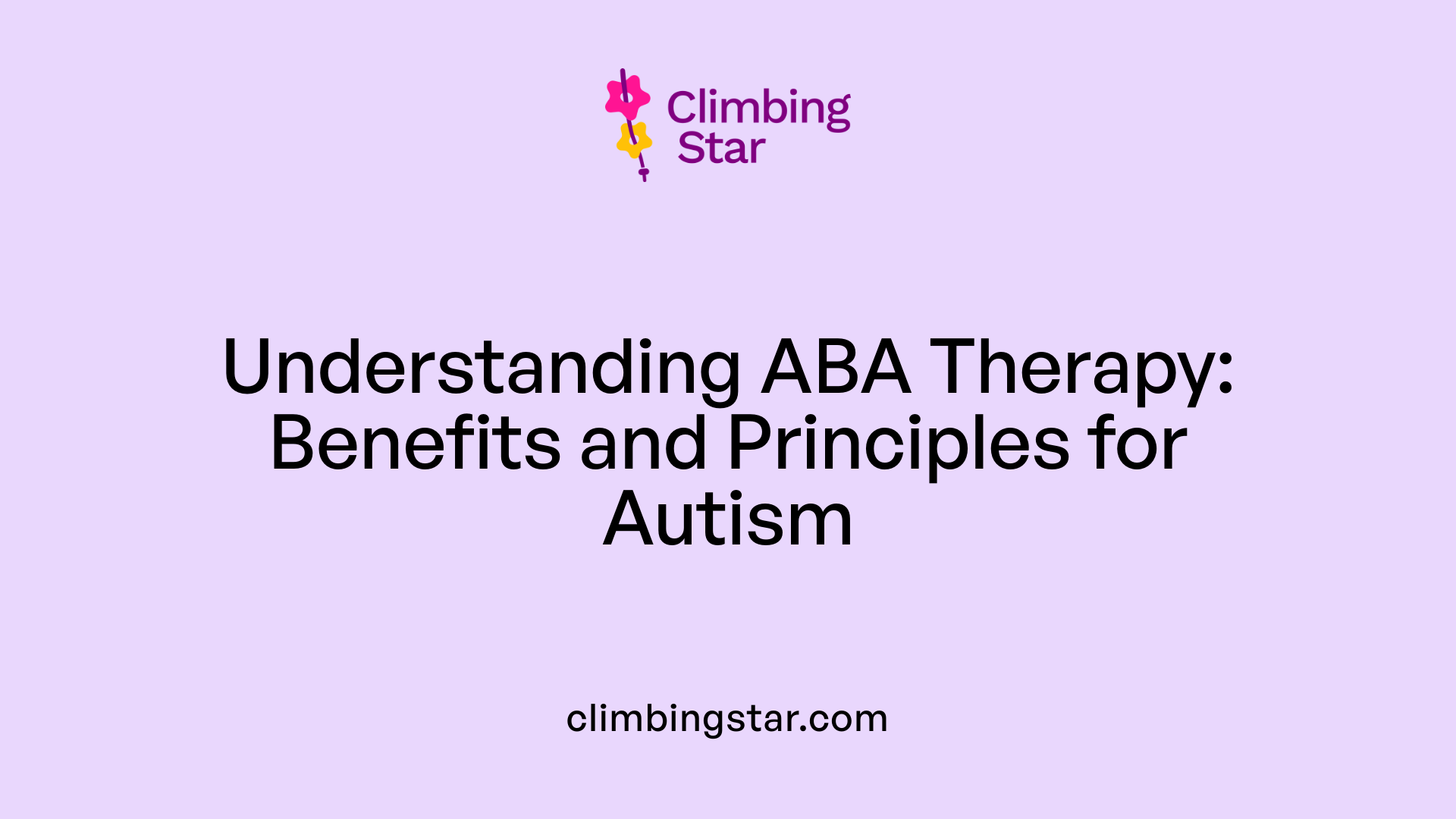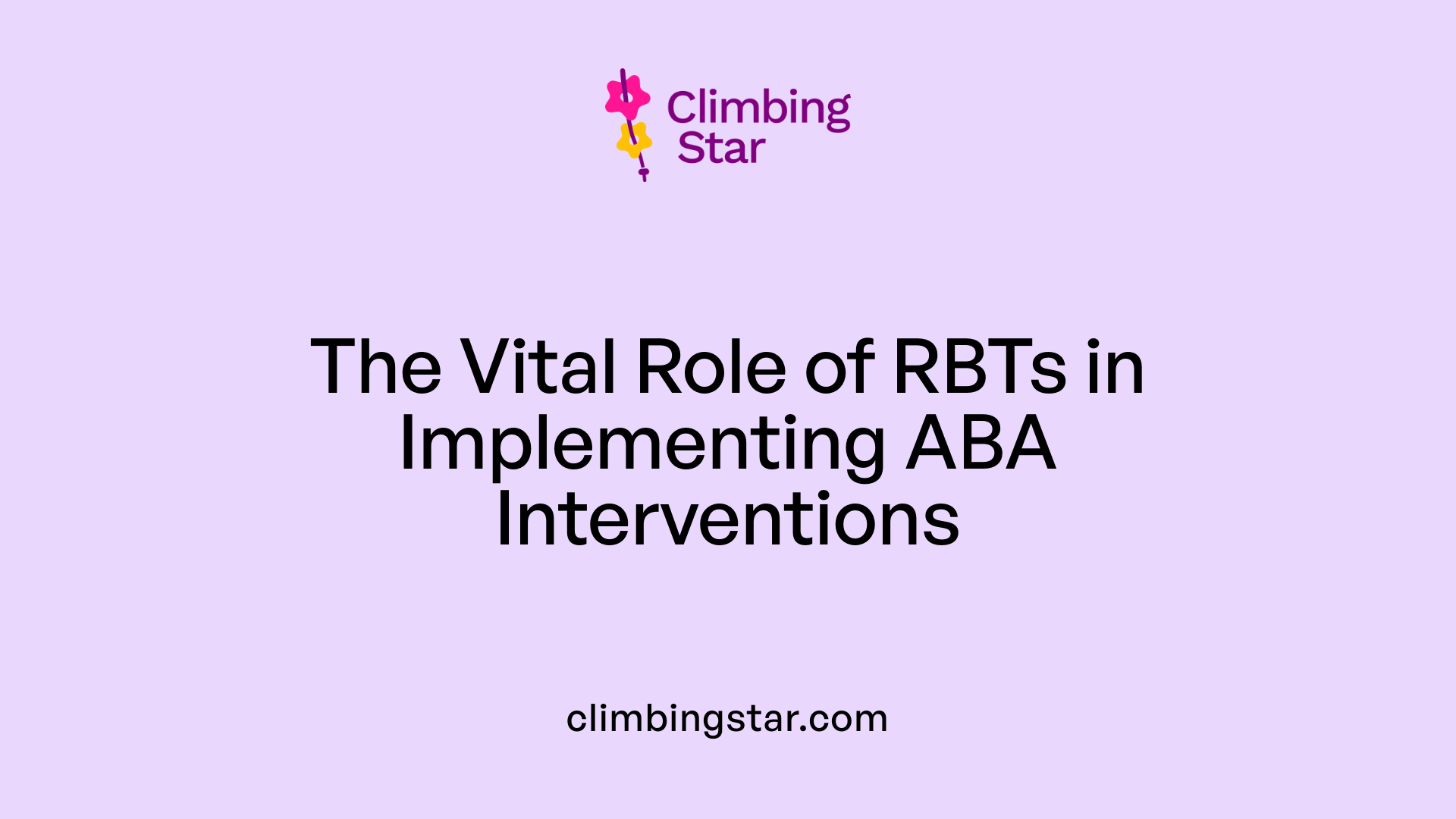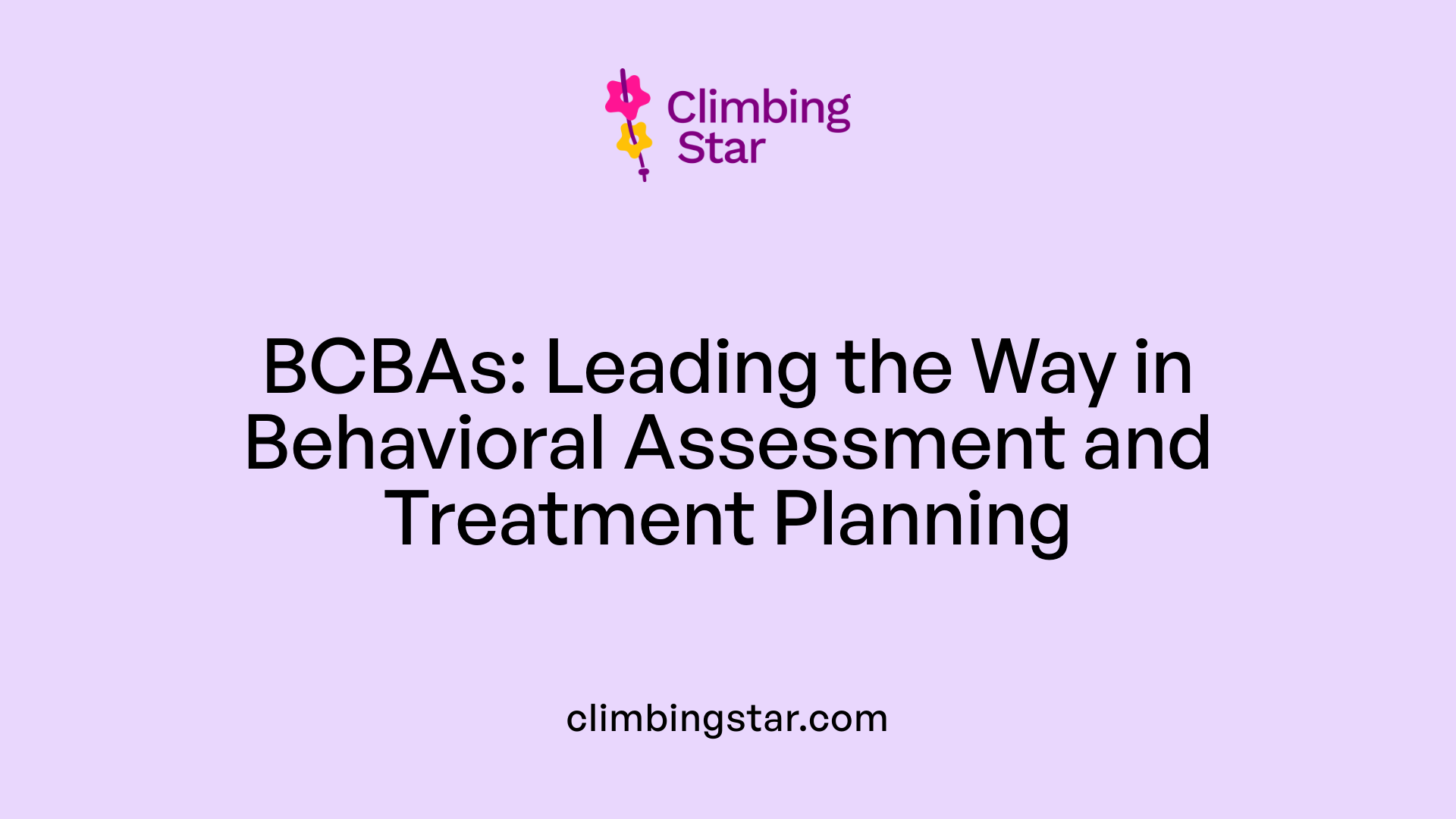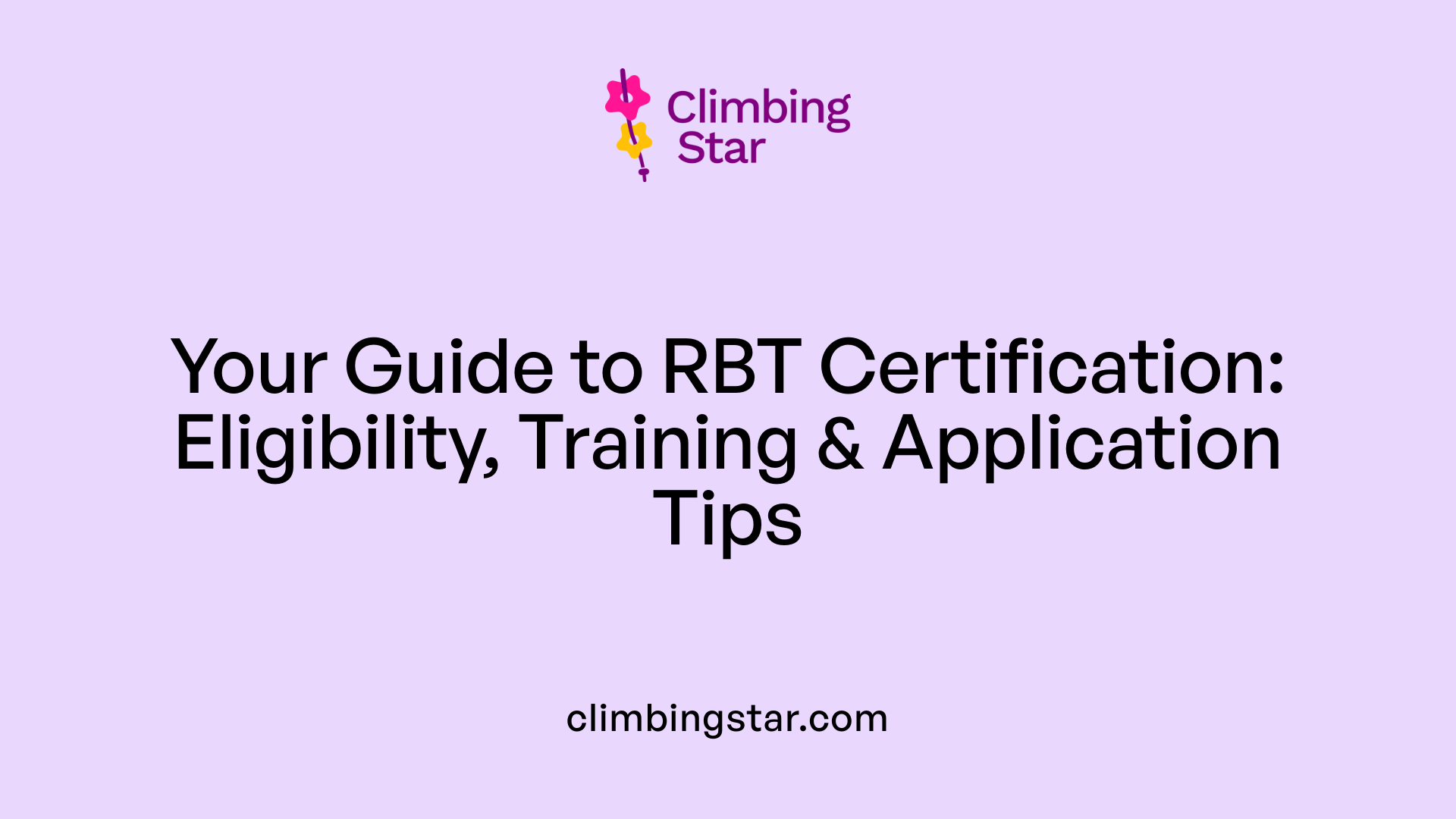Understanding the Role and Importance of an RBT
Registered Behavior Technicians (RBTs) play a pivotal role in delivering applied behavior analysis (ABA) therapy, particularly for individuals with autism spectrum disorder. As paraprofessionals working under licensed behavior analysts, RBTs implement intervention plans and collect critical data that guide therapeutic progress. This article explores what ABA therapy entails, the process to become an RBT, and how this certification can open doors to a meaningful career in behavioral health services.
What is Applied Behavior Analysis (ABA) Therapy and Its Benefits for Autism

What is applied behavior analysis (ABA) therapy for autism?
Applied behavior analysis (ABA) therapy is a scientifically supported treatment designed to help individuals with autism improve specific skills and reduce problematic behaviors. It is based on principles of learning and behavior, using methods like positive reinforcement to encourage desired behaviors. ABA therapy involves the development of individualized programs tailored to each person's needs, usually overseen by a qualified behavior analyst (BCBA).
The therapy employs structured techniques such as Discrete Trial Training (DTT), which breaks skills into small, teachable components, and naturalistic methods like Pivotal Response Treatment (PRT), which focuses on motivation and social engagement within natural settings. ABA practitioners follow the A-B-Cs framework — Antecedent, Behavior, Consequence — to analyze and modify behaviors effectively. Treatment settings vary from homes and schools to community environments, making therapy accessible and adaptable.
How does ABA therapy benefit individuals with autism?
ABA therapy benefits those with autism by helping develop important communication, social, and daily living skills through evidence-based approaches. It carefully observes how behaviors are influenced by environmental factors and applies reinforcement strategies to increase positive behaviors while reducing those that interfere with learning or daily functioning.
Regular assessment and data collection ensure that interventions are tailored to an individual's progress and needs. Early and intensive ABA programs have been demonstrated to improve cognitive abilities, language development, social interactions, and self-care. Many children undergoing ABA therapy achieve greater independence and better integration into mainstream environments.
Overall, ABA therapy offers meaningful and measurable improvements that enhance the quality of life for individuals with autism, supporting their growth in essential life skills and reducing behaviors that may limit their potential.
Roles and Responsibilities of an RBT in ABA Therapy

What is the Role and Scope of an RBT?
A Registered Behavior Technician (RBT) is a paraprofessional credentialed by the Behavior Analyst Certification Board (BACB). RBTs work primarily to support Applied Behavior Analysis (ABA) therapy by implementing treatment plans under the supervision of board-certified behavior analysts (BCBAs). They are essential members of the behavioral health team, particularly in interventions for children with autism spectrum disorder (ASD).
What Are the Duties of an RBT in ABA Therapy?
RBTs are tasked with carrying out behavior intervention plans designed by BCBAs. Their duties include:
- Implementing specific behavior protocols
- Collecting data on client behavior
- Supporting skill acquisition in individuals with autism
- Adhering to ethical and professional standards
Unlike BCBAs, RBTs do not create intervention plans or interpret assessment results; their focus is on direct service delivery.
How Does Supervision by BCBAs Work?
RBTs function under strict supervision rules established by the BACB. This supervision involves:
- At least 5% of the RBT's monthly hours being directly observed or monitored
- A minimum of two face-to-face supervision sessions every month
- Ongoing feedback and competency assessments by qualified supervisors
This structured oversight ensures quality and ethical service delivery.
What Limitations Define the RBT’s Practice?
While RBTs perform critical tasks in ABA therapy, they operate within clear boundaries:
- They do not conduct assessments or develop behavior plans
- They are not authorized to make clinical decisions independently
- Their work is always guided and overseen by a BCBA or equivalent professional
Who Typically Provides ABA Therapy for Autism?
ABA therapy for autism is typically provided by a team of professionals including BCBAs, licensed behavior analysts, and RBTs. These providers often work within clinics or specialized service organizations. Parent involvement and training also play a vital role to support consistent and effective treatment.
| Aspect | Description | Role in ABA Therapy |
|---|---|---|
| RBT | Paraprofessional credentialed by BACB | Implements interventions and collects data under supervision |
| BCBA | Board-certified behavior analyst | Designs and oversees treatment plans, supervises RBTs |
| Supervision Requirements | 5% monthly direct observation and at least two face-to-face sessions | Ensures ethical and accurate implementation of ABA services |
| Scope of Practice | Implementation of plans, data collection | Does not include assessment or treatment design |
The Integral Role of Board-Certified Behavior Analysts (BCBAs)

What is the role of a board-certified behavior analyst (BCBA) in ABA therapy?
A board-certified behavior analyst (BCBA) is essential in applied behavior analysis (ABA) therapy, taking the lead in assessing and designing individualized treatment plans for clients. They conduct detailed assessments such as functional behavior assessments (FBAs) to identify behavioral needs and develop targeted intervention strategies.
Supervision of RBTs
BCBAs oversee Registered Behavior Technicians (RBTs), the paraprofessionals who implement behavior intervention plans. They ensure that RBTs are properly trained and supported, verifying that treatment plans are executed accurately and ethically. This direct supervision includes monitoring RBTs’ work through ongoing observation and feedback.
Treatment Planning and Assessment
While RBTs carry out intervention plans, BCBAs are responsible for the creation and adjustment of these plans based on thorough data analysis. They gather and interpret behavioral data to evaluate client progress, making data-driven decisions to refine intervention techniques and enhance therapy outcomes.
Collaboration with Caregivers and Other Professionals
Beyond direct treatment, BCBAs collaborate extensively with caregivers, educators, and other healthcare professionals. This collaboration aims to generalize and maintain positive behavioral changes across different environments, ensuring consistency and effectiveness in the client’s day-to-day life.
BCBAs thus play a pivotal role in guiding the overall ABA therapy process, combining clinical expertise, supervision, and teamwork to maximize behavioral health outcomes for clients.
Navigating the Path to RBT Certification: Eligibility and Requirements

What are the Age and Education Prerequisites for Becoming an RBT?
To pursue Registered Behavior Technician (RBT) certification, candidates must be at least 18 years old and hold a high school diploma or its equivalent. These foundational requirements ensure that individuals have attained a basic level of maturity and education suitable for the professional responsibilities involved.
What Background Check Must Candidates Pass?
A criminal background check is mandatory for all RBT applicants to ensure the safety and welfare of the clients they will serve, particularly children with autism spectrum disorder. This screening acts as a safeguard within the certification process to maintain ethical standards and public trust.
What Does the 40-Hour RBT Training Course Entail?
Aspiring RBTs must complete a 40-hour training course approved by the Behavior Analyst Certification Board (BACB). This comprehensive training is designed to prepare candidates with the essential knowledge and skills required for the role.
What Topics Are Covered in the Training Curriculum?
The RBT training curriculum includes:
- Applied Behavior Analysis (ABA) principles
- Measurement and assessment techniques
- Skill acquisition strategies
- Behavior reduction methods
- Ethical considerations (including a minimum of three hours dedicated to ethics)
- Documentation and reporting practices
- Crisis management and professional conduct
This curriculum equips trainees with practical expertise for implementing behavior intervention plans and data collection under supervision.
Who Provides the Training and How Is It Delivered?
Training courses are offered by certified providers who ensure compliance with BACB standards. Most courses are available online, featuring self-paced modules that students can complete within a three-month period. These courses often include access to Board Certified Behavior Analysts (BCBAs) for guidance and feedback. Additionally, some programs may offer financial assistance options.
This structure allows flexible learning suited for individuals balancing other commitments, broadening access to the RBT certification pathway.
Competency Assessment and Exam: Steps to Demonstrate RBT Readiness
What does the competency assessment entail?
The competency assessment is a crucial step in demonstrating readiness for RBT certification. It involves direct observation or role-playing scenarios where candidates must perform a variety of tasks from the RBT Task List, including implementing behavior intervention strategies and collecting accurate behavioral data.
Who conducts the competency assessment?
These assessments are conducted by Board-Certified Behavior Analysts (BCBAs) or other qualified professionals. The BCBA oversees the process to ensure candidates meet the practical skill requirements necessary for effectively supporting ABA services under supervision.
What is the format and content of the RBT exam?
Following successful completion of the competency assessment, candidates must pass the RBT exam. The exam consists of 75 multiple-choice questions designed to test knowledge across six content areas:
- Measurement
- Assessment
- Skill acquisition
- Behavior reduction
- Documentation and reporting
- Professional conduct and ethics
This exam ensures that candidates comprehend essential ABA principles and the ethical responsibilities of an RBT.
How can candidates prepare for the exam?
Preparation resources include the updated RBT Handbook and training courses that cover ABA fundamentals through online modules, videos, quizzes, and assignments. Many courses also provide access to BCBAs for personalized feedback, which helps candidates solidify both theoretical knowledge and practical skills in advance of the examination.
Together, the competency assessment and the exam form a comprehensive evaluation system that validates the candidate's ability to perform as a competent Registered Behavior Technician.
The Certification Process: Application, Fees, and Official Recognition
How do you apply for RBT certification through BACB?
The application for Registered Behavior Technician (RBT) certification is submitted directly through the Behavior Analyst Certification Board (BACB) website. Candidates must first create a BACB account and upload all required documentation. This includes proof of completing the 40-hour RBT training program and passing the mandatory competency assessment conducted by a Board Certified Behavior Analyst (BCBA) or qualified professional.
What documentation is required for the application?
Applicants need to provide several key documents:
- Certificate of completion of the 40-hour RBT training
- Verification of passing the competency assessment
- Evidence of meeting eligibility requirements (age, education, and background check clearance)
- Completed application form available on the BACB dashboard
What are the fees involved in the certification process?
The total cost to become certified is approximately $95, which covers the BACB application and exam fees. Additional costs may include expenses for the 40-hour training course if not already completed through accessible providers. Importantly, these fees are relatively affordable compared to other certification processes.
What is the typical timeline for certification issuance?
Once all documentation is submitted and the application is approved, candidates must pass the RBT exam, consisting of 75 to 85 multiple-choice questions. The entire certification process—from starting the application to receiving the official certification—can vary depending on candidate readiness but generally follows these steps:
- Complete the 40-hour training within 180 days
- Pass the competency assessment within 90 days of application submission
- Pass the RBT exam
Upon successfully passing the exam, the BACB issues the certification, officially recognizing the individual as an RBT authorized to provide behavior-analytic services under supervision.
This organized process ensures that RBTs meet national standards and equips them with the essential skills and credentials to work effectively in the field of applied behavior analysis.
Maintaining Your RBT Credential: Supervision and Renewal Requirements
What Are the Supervision Protocols and Frequency for RBTs?
Registered Behavior Technicians (RBTs) must work under the supervision of a qualified professional, usually a Board-Certified Behavior Analyst (BCBA). This supervision involves at least 5% of their monthly working hours being monitored. Supervision includes a minimum of two face-to-face sessions per month, allowing supervisors to guide, provide feedback, and ensure the quality of ABA service delivery.
What Does Ongoing Professional Development Entail?
Continued learning is crucial for RBTs. While specific course requirements vary, staying current with applied behavior analysis principles, ethical practices, and intervention techniques is essential. Many training providers offer resources such as videos and interactive modules to support ongoing development.
How Do Ethics and Compliance Factor into RBT Maintenance?
RBTs must adhere to the Behavior Analyst Certification Board's (BACB) ethical standards consistently. This includes maintaining confidentiality, professionalism, and integrity in their work. Ethics training is a core part of initial certification and remains a focus throughout certification renewal.
What Is the Renewal Process and Timeline for RBT Certification?
RBT certification must be renewed annually. To maintain the credential, RBTs need to document continuing supervision and adhere to BACB requirements. Renewal typically involves submitting proof of supervision compliance and ethical adherence to the BACB, along with a renewal application and fee.
| Requirement | Details | Purpose |
|---|---|---|
| Supervision | Minimum 5% of hours monitored monthly; 2 in-person sessions | Ensure quality and compliance with intervention plans |
| Professional Development | Ongoing education via courses/videos on ABA and ethics | Maintain up-to-date skills and knowledge |
| Ethics and Compliance | Continued adherence to BACB ethical standards | Uphold integrity and professionalism |
| Renewal | Annual submission of supervision documentation and fees | Keep certification active and valid |
Career Perspectives: Employment Opportunities and Growth for RBTs
What is the job market outlook and demand for RBTs?
The demand for Registered Behavior Technicians (RBTs) is strong and growing. Projections show a 9% growth in employment opportunities for RBTs from 2021 to 2031. This demand is driven by increasing awareness and diagnosis of autism spectrum disorder, as well as the expanding use of applied behavior analysis (ABA) therapy in educational and healthcare settings.
What are the average salary expectations for Registered Behavior Technicians?
On average, RBTs earn around $54,000 annually. Salaries can vary depending on geographic location, experience, and the employing organization. As professionals gain more experience or pursue additional qualifications, salary potential can increase.
What professional growth pathways are available for RBTs?
Starting as an RBT provides a solid foundation in behavior analysis and therapy implementation. Many RBTs choose to further their education and pursue certifications such as Board Certified Assistant Behavior Analyst (BCaBA) or Board Certified Behavior Analyst (BCBA) for career advancement. These pathways open opportunities for higher responsibility roles, including designing treatment plans and supervising other technicians.
What work environments and employer types hire RBTs?
RBTs typically work under the supervision of Board Certified Behavior Analysts (BCBAs) in a variety of environments. Common settings include clinics specializing in autism and behavioral health, public and private schools, home-based therapy programs, and healthcare facilities. Employers span non-profit organizations, private practices, and government agencies, providing diverse employment options for RBTs.
Controversies and Considerations in ABA Therapy and RBT Practice
Are there any controversies or criticisms surrounding ABA therapy?
Applied Behavior Analysis (ABA) therapy has been subject to various controversies and criticisms, especially regarding its historical and ethical aspects. Early forms of ABA sometimes involved aversive techniques such as electric shocks aimed at suppressing undesired behaviors, which are now widely condemned as unethical. Critics also raise concerns about the therapy’s tendency to prioritize making autistic individuals conform to neurotypical behavior standards, often discouraging natural behaviors like self-stimulation, which can be calming or meaningful to the individual.
This rigidity has led to worries about emotional distress or trauma if therapy is not customized thoughtfully. In response, the current practice of ABA emphasizes personalized and compassionate approaches, respecting neurodiversity and focusing on enhancing quality of life rather than seeking to "cure" autism.
Importance of Personalized and Compassionate ABA
Modern ABA relies on tailoring intervention plans to the unique needs of each autistic individual. Registered Behavior Technicians (RBTs), working under the supervision of qualified Board Certified Behavior Analysts (BCBAs), ensure that therapies are implemented with sensitivity and ethical considerations. This approach helps avoid past pitfalls and promotes positive developmental outcomes without compromising the individual's dignity or emotional well-being.
RBTs play a crucial role in applying these ethical principles through data collection, behavior intervention plan execution, and skill development support, all while following BACB guidelines on supervision and ethical conduct.
Through ongoing supervision and training, ABA providers aim to maintain high standards of care that address ethical concerns and advocate for the respectful treatment of autistic individuals during therapy.
Becoming an RBT: A Step Toward Making a Difference
Achieving Registered Behavior Technician certification offers a unique gateway to a rewarding and impactful career in behavioral health, especially in the field of autism therapy. Through comprehensive training, rigorous assessment, and ongoing supervision, RBTs gain the skills needed to effectively support behavior analysts and improve the lives of those they serve. While challenges and ethical considerations exist within ABA therapy, the modern approach emphasizes respect, individualization, and positive outcomes. For anyone passionate about making a meaningful difference, becoming an RBT is a vital first step.
References
- Registered Behavior Technician (RBT)
- How to Become a Registered Behavior Technician (RBT)
- Registered Behavior Technician Handbook
- How to Become a Registered Behavior Technician
- Registered Behavior Technician Training (Voucher Included)
- RBT Certification | Registered Behavior Technicians
- RBT Certification Requirements and Process






